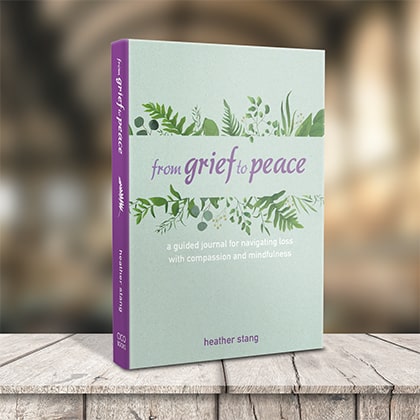Loneliness after loss isn’t just about who’s missing—it’s about how far you feel from yourself. This article explores how grief journaling can help you show up with honesty and compassion, reduce emotional isolation, and prepare you for deeper reconnection. Includes journal prompts and practical tips.
Self-compassion as self-care for grief is the practice of making skillful choices that will reduce suffering and improve the quality of your life. It goes beyond creating healthy habits, such as exercise, a balanced diet, drinking plenty of water and getting the right amount of sleep – though these can all help with grief.How Being
Reengaging with your social network isn’t about forcing yourself into awkward social settings or pretending to feel cheerful. It’s about finding safe, meaningful ways to reconnect with your community at your own pace.After the loss of a loved one, the social fabric of your life may feel like it’s unraveled. Places that once brought comfort
Even when grief isolates you, it does not mean you are truly alone. Connection may feel far away, but it’s not gone—it’s waiting. Here is how to reach for it.Grief is already heavy—but when you feel like you’re carrying it alone, the weight becomes something else entirely. Whether you’ve experienced the loss of a loved one
Loneliness is one of grief’s quietest companions—and one of the hardest to talk about. Whether you’re missing the person you lost or struggling to reconnect with the world around you, emotional and social loneliness are normal parts of bereavement. In this article, you’ll learn why grief disrupts your support system, how it affects your relationship with yourself, and what science and mindfulness can teach us about healing through connection.
If you’re navigating the pain of divorce, it’s likely you’ve encountered references to the so-called “five stages of grief.” While the idea of a structured grief process can be comforting, the truth is more complex. Divorce doesn’t unfold in a neat, predictable order. And neither does grief.Instead of guiding people through the process of grief,
Divorce may be common in modern times, but that doesn’t lessen the impact. The grief that comes with divorce is often minimized—by others and sometimes even by ourselves.Because it’s so common, people might assume you’re “fine” once the paperwork is done. Or they may have no idea how to support you. But this kind of
Discover compassionate tips for coping with Mother’s Day grief when your mother is no longer with you, focusing on mindfulness, self-care, and creative expression to honor her memory and find solace. As Mother’s Day approaches, the absence of your mother may feel even more palpable – whether it has been days, months, or decades. It’s important
Mother’s Day might feel tender, heavy, or unexpectedly calm. However it finds you this year, know this: Your grief matters. Your bond still exists. And you get to shape how you carry your mother’s memory forward.Grieving on Mother’s Day can bring a unique kind of ache. For some, it’s the absence of a mother who
The first Mother’s Day without your mom is one of the most emotionally challenging days of the year. Whether the loss was sudden or followed a long illness, the absence can feel sharp, surreal, and hard to name.This holiday, so often wrapped in pastel flowers and picture-perfect cards, can bring a flood of memories—and a
Sometimes a thought shows up again and again—like a knot in the mind you can’t untangle. In the last post, we explored helpful vs. harmful grief-related thoughts. Today, we’ll put one of those into practice: gently shifting the way we hold a painful thought.This isn’t about finding silver linings or making yourself feel better than
In Grief Rumination Spiral: Helpful vs. Harmful Thoughts, we explored the kinds of thoughts that help grief move and the kinds that tend to keep us stuck. If you’ve begun to notice your own patterns, you’re already doing the most important part: bringing awareness to what’s happening inside you. Now let’s talk about what to do

